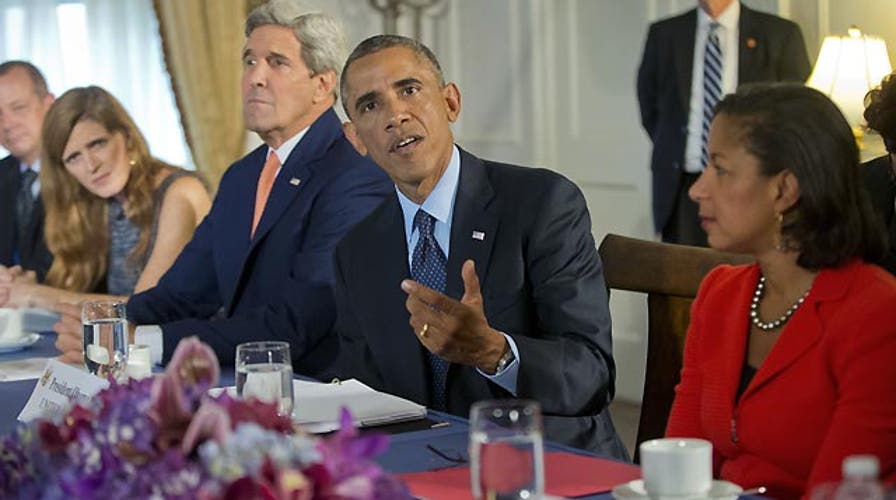President Obama has put some muscle behind his threat to “degrade and destroy” ISIS. Bombs now target Syrian as well as Iraqi territory.
Leaving the debate over whether or not this “war” needs boots on the ground, there is one other front that the needs to be opened if ISIS’ capabilities are to be seriously degraded: The president should immediately convene a White House summit with the social media giants, including Google, Facebook, YouTube and especially -- Twitter.
At this moment, ISIS is winning the P.R. war for the minds and hearts for disaffected young Muslims around the world. Even the new airstrikes by the US-led coalition is immediately spun as a badge of courage, primarily through ISIS’ skillful use of the Internet.
[pullquote]
ISIS has deployed online platforms with the sophistication of television news producers to get maximum global impact from its horrific beheadings of Western hostages.
ISIS also deftly manipulated digital technologies to inspire and recruit thousands of young native-born Muslims from Western democracies to leave Germany, France, the UK, U.S., Canada, and Australia to train and fight the Holy War in the Middle East and then to return to their native democracies to carry out deadly attacks.
Like any multinational entity, the backbone of ISIS’ online global marketing strategy is Twitter. Tweets help ensure that ISIS’ malignant mandate goes viral when it suits the terrorists. Tweets were used to create instantaneous online Islamist heroes within hours of terrorist murders in Toulouse, Brussels, Mosul, and Syria.
I regularly meet with social media companies including Twitter. To date, their policy regarding digital terrorism and hate—to the extent that it exists—is a bad joke.
When I asked Twitter officials at a recent meeting if they remove tweets that have the ISIS logo, their response was “ not necessarily, it depends on what it says.”
Really? I asked Twitter's management if they would at least use the baseline of U.S. State Department and European Union lists of terrorist groups as the basis to bar those organizations from using Twitter. The answer was no.
Even after Twitter removed tweets the Wiesenthal Center presented to them that had been posted by Al Shabab and other extremists groups, within days, multiple replacements by the same groups were back in business.
That’s why we have given Twitter grades ranging from D- to F. That’s why we have given YouTube a C. They still allow too much dangerous information on their site, including how to use and make trigger devices for bombs using your cell phone.
One company, Facebook has consistently earned an A-.
On the same day Twitter confirmed they allow ISIS to operate, Facebook officials looked at me like I was nuts: “Of course, we don’t allow ISIS to be on Facebook. We remove it immediately.” That company hasn’t waited for political pressure to join the struggle to thwart online terror and bigotry. They have coherent and transparent rules. They assign real people to act quickly on complaints. Facebook has at least three teams on three continents working every day to thwart the extremists who pose an existential threat to us.
To be clear, there is much individual companies can do with open source material, without gutting privacy, without wholesale data shifting to governments, to help degrade ISIS and its ilk.
We have tried to get Twitter to do the right thing. So far we have failed. In the dangerous world we live in today, Twitter seems too comfortable enabling genocidal terrorists and their supporters. Such arrogance degrades our security and put our cherished freedoms at risk.
We can only hope that the bully pulpit of the White House will finally force all the social media companies to voluntarily do their share to "degrade and defeat" the burgeoning online domain of terrorism, starting with ISIS.

